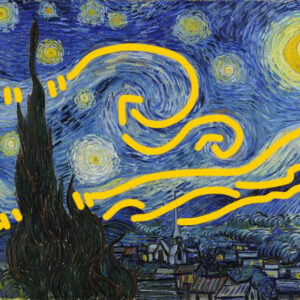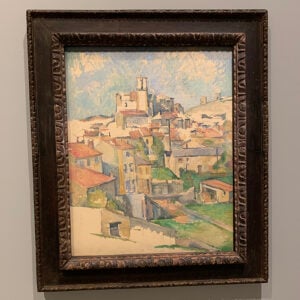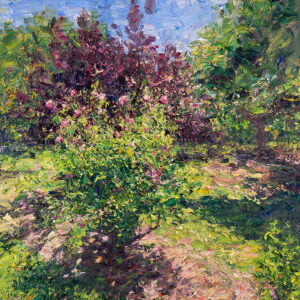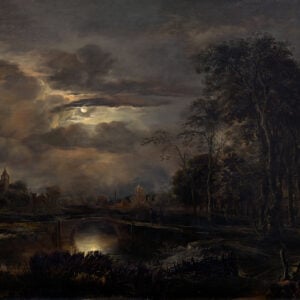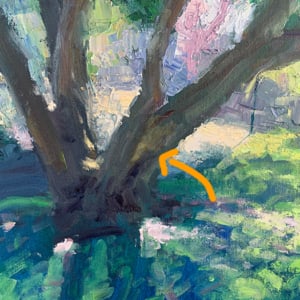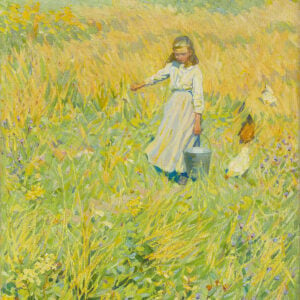I’m going to walk you through my thought process in deciding whether or not to paint a certain subject. Below are several reference photos from the library. For each, I’ll determine whether I would or wouldn’t paint it and discuss why.
Photo 1

Would I paint this? Yes.
Why? The scene has crisp colors and a pleasant composition. The group of ducks adds interest to the scene and could act as a focal point.
Photo 2

Would I paint this? No.
Why? This scene has potential, with all the interesting colors and highlights in the foreground. But, it’s too scattered and the lights are overexposed.
Photo 3

Would I paint this? No.
Why? I like this scene, however, there’s no lead-in (the composition starts immediately with the plants at the bottom). It also lacks a strong focal point.
Photo 4
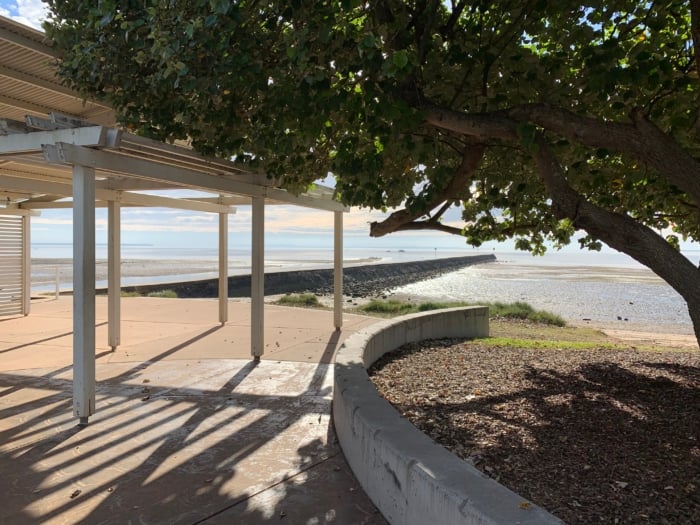
Would I paint this? Yes.
Why? It’s an interesting scene, with the tree on the right, the architecture on the left, the rock wall around the middle, and the pastel colors in the distance. The challenge would be getting all these parts to work together.
Photo 5

Would I paint this? No.
Why? You could make this scene work, but as it stands, the composition is uninviting and it lacks any strong focal point. If I were to paint this, I would zoom in on one of the boats and make it the focus.
Photo 6

Would I paint this? Yes.
Why? The colors are crisp, with warm reflected light on the underside of the branches, a range of earthy mid-tones, light blues for the sky, and dry yellows and greens for the leaves. I also like the unusual upward perspective and the patterns created by interwoven sky and branches.
Photo 7

Would I paint this? No.
Why? To make this scene work, the composition would need to be adjusted. Perhaps something more compelling in the background and a less cluttered foreground.
Photo 8
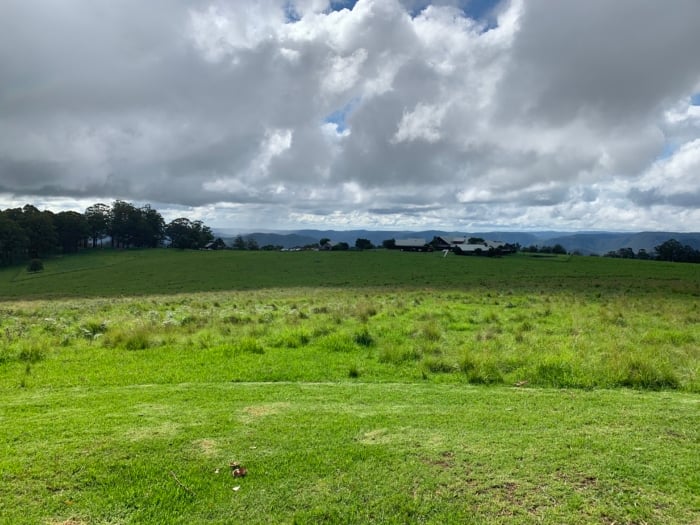
Would I paint this? Maybe.
Why? The sky, land, and landscape in general are stunning. But the composition is lacking. You might be able to make it work by cropping part of the land.
Photo 9

Would I paint this? Yes.
Why? There’s a strong focal point, with the light bursting through the middle. The tree provides an opportunity to use broken color. I would, however, simplify or exclude the truck. The path helps lead our eyes through the painting. This could be improved if the path did not cut out of the scene.
Photo 10

Would I paint this? Yes.
Why? There’s a wonderful sense of atmosphere. The color theme is interesting, particularly with the saturated greens. The glassy water provides an almost exact reflection of the land above.
Photo 11

Would I paint this? No.
Why? The colors are wonderful, but it’s a scattered composition. There needs to be some kind of lead-in to the flowers. Or, the flowers need to take up the whole scene, as Claude Monet did with Chrysanthemums.
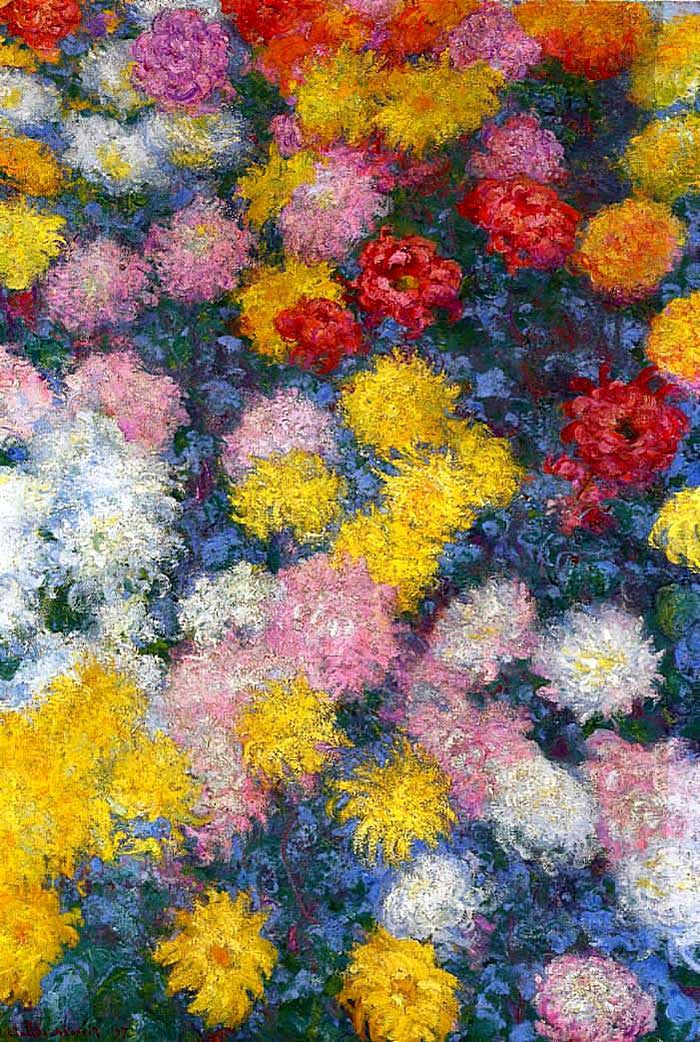
Photo 12

Would I paint this? No.
Why? It has potential and a skilled artist could make it work, but you would need to simplify much of the noise.
Photo 13

Would I paint this? Yes.
Why? It’s a simple scene, but I can see it as a painting. The overhanging branches help break up the sky. There’s an interesting play between the creeping plants and the sand in the foreground. The distant land provides opportunities to convey atmospheric perspective. And the waves add interest to the water.
Key Takeaways
- Do you feel compelled to paint it? If not, consider painting something else. You should feel excited to pick up the brush and paint the subject.
- Every painting starts with subject selection. The more thought you put into subject selection, the smoother the painting process will be.
- It’s not enough to have a bunch of beautiful parts. They also need to work together.
- Don’t get caught up in all the rules and theory. If a scene speaks to you, paint it!
Thanks for Reading!
Thanks for taking the time to read this post. I appreciate it! Feel free to share with friends. If you want more painting tips, check out my Painting Academy course.
Happy painting!

Dan Scott
Draw Paint Academy

